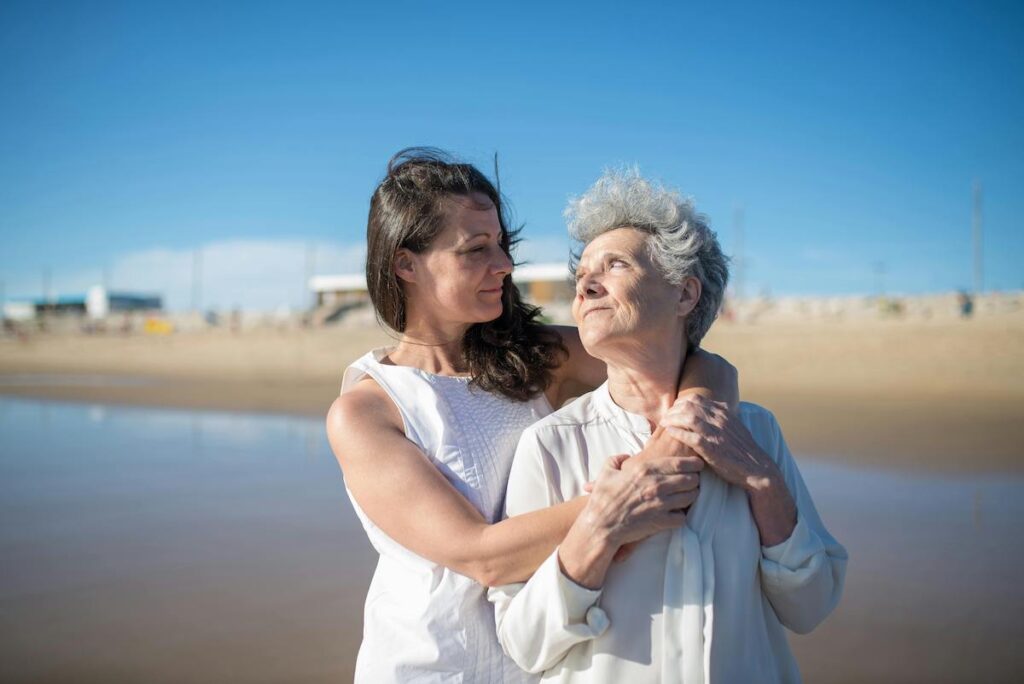What to Say When My Daughter Says She Doesn’t Need Rehab: Understanding the Emotional Conflict When Your Daughter Refuses Help
When a parent hears their daughter say she doesn’t need rehab, it can feel like hitting a wall. You’ve seen the changes in her behavior, you’ve watched her struggle, and you’ve worried endlessly. Yet when you bring up treatment, she shuts down. Maybe she insists she has everything under control or blames stress, friends, or circumstances. Her refusal might not just feel like denial, it might feel like rejection of you, your concern, and the lifeline you’re trying to offer.
It’s important to know this: her refusal doesn’t mean she’s beyond help. It usually means she’s scared, unsure, or not ready to confront the reality of addiction. Your response, in these moments, matters. What you say and and how you say it can either open a door or build another wall. Learn more about What to Say When My Daughter Says She Doesn’t Need Rehab.
Why Your Daughter May Say She Doesn’t Need Rehab
Before responding, it’s crucial to understand where her words are coming from. Most people battling addiction don’t leap at the opportunity for treatment. Here are some reasons she may say no:
- Denial: She may not believe she has a problem.
- Fear of Judgment: She may be afraid of what others will think.
- Loss of Control: Going to rehab can feel like surrendering autonomy.
- Fear of Withdrawal: The process of detox may terrify her.
- Shame or Guilt: She may already feel like she’s disappointed you and doesn’t want to be reminded.
Even if her reasons aren’t clear to you, they’re valid to her. Acknowledging this doesn’t mean you agree with her, it just means you’re willing to meet her where she is emotionally, which is where change often begins.
What Not to Say: Common Mistakes That Shut Down the Conversation
When emotions are high and you’re desperate to help, it’s easy to say things that cause more harm than good. Avoid phrases that feel accusatory, dismissive, or emotionally manipulative. These include:
- “You’re throwing your life away.”
- “If you loved me, you’d get help.”
- “You’re ruining this family.”
- “I’m done with you if you don’t go.”
These statements often stem from deep pain, but they create shame and defensiveness, two barriers that keep people from accepting help. Instead, focus on calm, honest dialogue. That doesn’t mean sugarcoating the truth. It means speaking it with compassion.
How to Start a Supportive Conversation
Approaching your daughter about rehab requires more than timing. It requires empathy, patience, and a steady hand. Here are some principles that can guide your approach:
1. Choose the Right Moment
Avoid starting the conversation during an argument or crisis. Look for a moment when she’s relatively calm, sober, and receptive. If you’re not sure when that is, wait. A bad moment can derail your efforts and increase resistance.
2. Express Concern, Not Blame
Instead of saying, “You have a problem,” try saying, “I’m worried about you.” Use statements that center your own feelings and observations rather than accusations. For example:
- “I’ve noticed you seem overwhelmed lately.”
- “I love you and I’m scared for your health.”
This approach creates less defensiveness and more space for connection.
3. Ask Open-Ended Questions
Instead of trying to lecture or force her to see your point, ask her how she’s feeling. You might say:
- “Can you help me understand how you’re doing?”
- “What do you think would help you feel better right now?”
This doesn’t mean you’ll agree with her answer. It just means you’re listening. And when people feel heard, they’re more likely to listen in return.
When to Share Your Boundaries
Sometimes love means drawing a line. If your daughter continues to refuse treatment, you may need to set boundaries for your own mental health and family stability. These boundaries aren’t punishments, they’re decisions that protect you and encourage her to take responsibility.
A boundary might sound like:
- “We can’t financially support you if you’re not willing to get help.”
- “We need to protect your younger siblings from unsafe behavior.”
- “We won’t allow drug use in our home.”
Boundaries are most effective when they’re communicated calmly and followed consistently. Don’t deliver them as ultimatums. Share them with clarity and love.
Helping Her See That Treatment Isn’t a Punishment
Your daughter may see rehab as something shameful, restrictive, or unnecessary. Helping her understand what rehab really is: a path toward healing, not punishment that can shift her perception.
You might say:
- “This isn’t about controlling you. It’s about helping you find peace.”
- “You deserve support, not punishment. That’s what treatment offers.”
- “Rehab is a break from chaos, a chance to rebuild on your own terms.”
You can also offer to help her explore different treatment options together. Involving her in the decision can help her feel a sense of control, which many people in early addiction are afraid of losing.
Consider a Professional Intervention
If your daughter continues to resist rehab despite obvious need, you may consider a professional intervention. But not all interventions are created equal. A well-run intervention focuses on love, accountability, and structured support, not confrontation or ambush.
Work with an experienced interventionist who understands adolescent or young adult addiction. They’ll help guide your family through preparation, the actual meeting, and next steps based on her response.
Supporting Yourself While Supporting Her
Loving someone through addiction can feel isolating. You’re constantly walking a line between fear, hope, and exhaustion. You may question your parenting or feel guilt for not acting sooner. These emotions are heavy, and you deserve space to process them.
Consider connecting with:
- A therapist who specializes in family addiction.
- Parent support groups (both in-person and online).
- Al-Anon or similar programs for family members of those struggling with substance use.
You cannot be the only support system your daughter has. Strengthening your own mental and emotional health allows you to be present, calm, and clear-headed when she needs you most.
When She Finally Says “Yes” to Help
When your daughter finally opens up to the idea of rehab (whether it takes one conversation or a hundred) be ready. This means:
- Having treatment options researched in advance.
- Knowing what insurance covers (or doesn’t).
- Being emotionally prepared to support her without controlling the process.
Your job doesn’t end when she says yes. But that “yes” is a powerful start.
Compassion Is the Bridge to Recovery
You don’t have to be perfect to help your daughter. You just have to be consistent, calm, and compassionate. When she says she doesn’t need rehab, it’s a signal. It’s a signal that she’s afraid, uncertain, or not ready.
With the right words, patience, and support, that answer can change. Your love, when paired with healthy boundaries and well-timed action, can be the very thing that gets her the help she needs. If you need assistance, please contact The Wave of North Florida.



